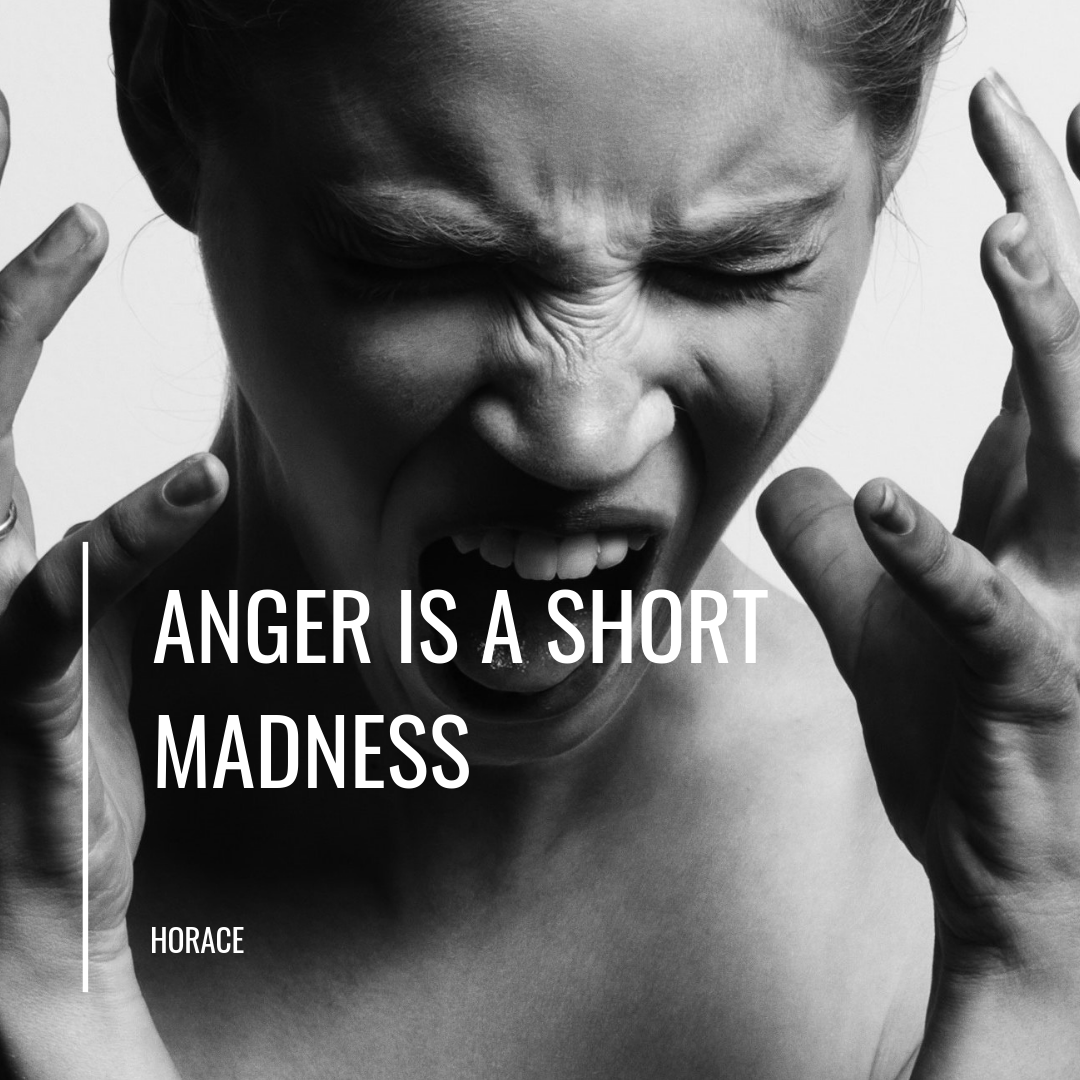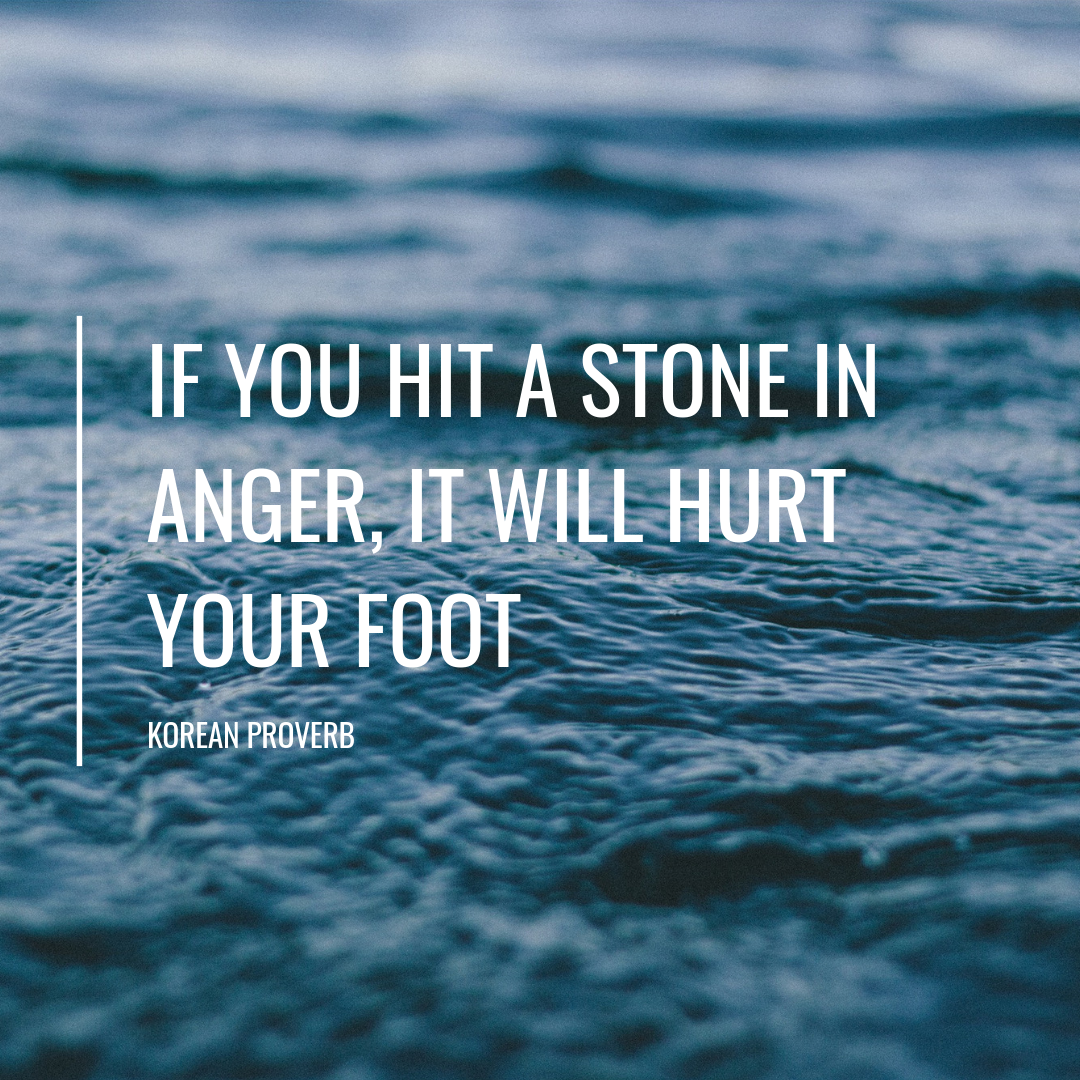November 2018
Anger is a fundamental human emotion. It’s impossible to never feel anger. And yet, we’re often taught from a very young age that anger is always wrong.
In fact, anger – and its close relatives frustration, irritation and annoyance – are a sign: a sign that we are unhappy with a situation and we want something to change. Often this is when we feel that our rights – or those of someone or something we care about – have been violated. And that’s a good thing to be aware of! Anger give us the motivation to change a situation. The problems start when anger leads us to act in unhelpful ways.
Feeling angry is not always the problem
It’s useful to distinguish between feeling anger, and acting angrily. It’s the way we behave as a result of anger that is usually the problem – acting without control, saying or doing things we later regret, becoming aggressive or even violent. Sometimes this angry or aggressive behaviour can get us what we want in the short-term (e.g., winning an argument), but it usually causes greater problems in the longer term (damaging a relationship that we care about deeply).

We can feel anger and still act calmly. But how?
3 steps to managing your anger
- Learn to recognise anger
Start to watch for the triggers and “early warning signs” that you are starting to experience anger.
These could be:
- “trigger situations” (talking to a difficult colleague at work, or spotting your partner’s dirty dishes in the sink);
- thoughts (“I can’t stand this!” or “how dare he?!”); or
- feelings in the body (these vary from person to person, but often involve a feeling of rising heat in the chest, or tense/ prickly sensations in your arms).
Be aware that anger can often carry over from one situation to another – you may have become irritated because of a traffic jam or row at work, and then over-reacted with anger to an unrelated situation when you return home.
Learn to recognise your particular “early warning signs”. Whenever you notice them, move on to step 2
- Step back from the anger
Use your “early warning signs” as a cue to step back from the anger. This will help you to control your behaviour. Different strategies work for different people, but the following are often useful:
- Take a few deep breaths (relatively short breath in through the nose, and longer out-breath through the mouth)
- Tell yourself “I can be calm about this”
- Notice the feelings in your body (e.g. a racing heart, or tension in your chest) and tell yourself “I notice I’m having a feeling of anger”
- Bring your attention to 5 things you can see, 5 things you can hear, and 5 things you can feel touching your skin
Important: this isn’t about getting rid of the anger, it’s about allowing you to notice the anger but still act calmly!
- Act with calm and control
Stepping back from the anger can help give you the space to assess the situation more rationally and decide how you want to act – giving you back some of the control that the feeling of anger can often take away. How would I act in this situation if I weren’t feeling angry, or if I acted like the person I really want to be?
That may mean communicating your feelings and desired outcomes more assertively, walking away from a situation, or simply continuing to do whatever you have to do calmly and confidently.
What was your anger telling you?

Later, when you feel calm, it can be useful to reflect on the situation which triggered your anger and consider what your anger was telling you. What does this anger tell you about what matters to you, about issues you need to address, or about how you’d like yourself or others to be treated?
We often experience anger because we feel that our rights, or the rights of others we care about, have been violated in some way. It's useful to consider whether this feeling is reasonable … Anger often results from unreasonable demands we place on ourselves, others or the world (the way we, others or the world “should” or “shouldn’t” be). If the feeling is reasonable, it’s then important to consider what action we could take to address the underlying issue.
Anger can lead to positive change
Anger, directed into effective behaviour, can lead to great things. Consider how anger, channelled in a positive direction, has often influenced the fight against social injustice.
Following the steps above does not guarantee that we will be able to achieve our desired outcome, but it makes it more likely. Above all, it helps put us back in control when anger often leaves us acting out of control, pushing us to act in ways which hurt ourselves or those we care about.
To find out more about how cognitive behavioural hypnotherapy can help you to understand and deal with anger, please contact Mimi for a chat on 0203 868 6393 or drop her an email at mimi@relaxedmindtherapy.co.uk

